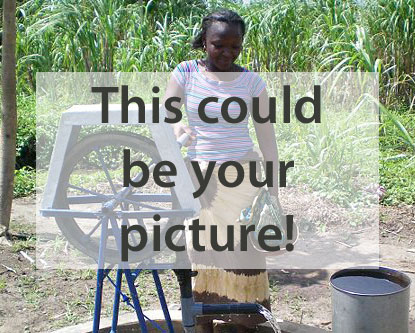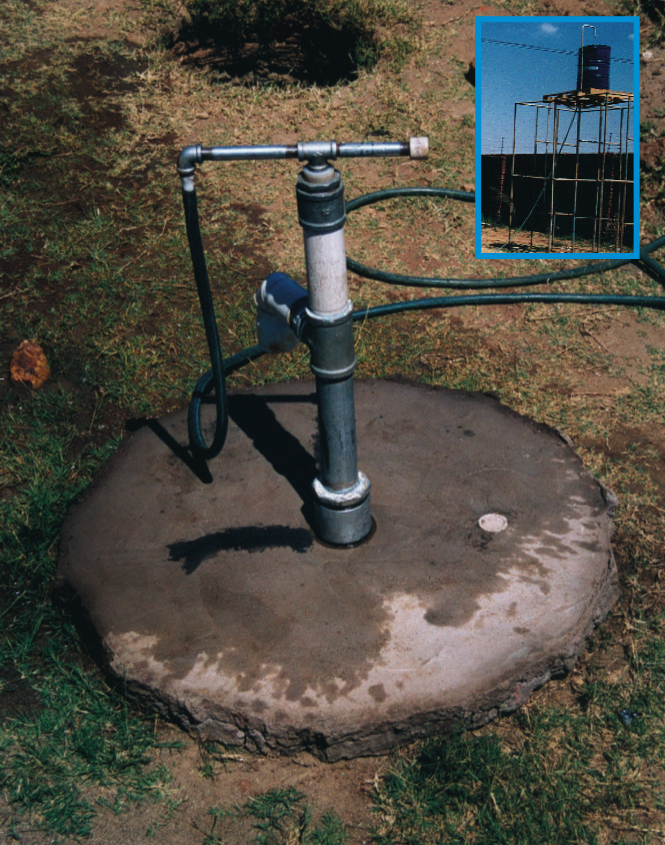Difference between revisions of "Deep well pump"
| Line 1: | Line 1: | ||
| + | {{stub}} | ||
[[Image:Deep_well_pump_icon.png|right]] | [[Image:Deep_well_pump_icon.png|right]] | ||
Revision as of 11:28, 29 April 2009
| |
Most direct action pumps such as the Blair pump are not fit to pump water higher than a few meters above ground level. New models such as the EMAS pump can pump up water to tanks as high as 30 m. These pumps are very popular for domestic use, as shown by 20,000 water systems in Bolivia. The pumps are made from local available PVC tubing and the valves are made with marbles. PVC pumps are used in Malawi and Brazil and many other countries in combination with water storage tanks.
Deepwell pumps
In general handpumps for rural water supply are piston pumps such as Indian MarkII, Afridef, Volanta, Nira and others. Information on these pumps can be found on the website www.rwsn.org. New developments can be seen at www.handpumps.org. and www.watsan.org.
| Advantages | Disadvantages |
|---|---|
| Suitable for domestic use. |
Capacity
25 litres / min (10 meter well).
Costs
- Baptist: US$ 2 / m, incl. drilling, casing and pump.
- EMAS: US$ 6/ m, incl. drilling, casing, pump, installation tubing, storage tank in kitchen.
Applying conditions
- Numbers: 20,000 in Bolivia, hundreds in Malawia.
- Range of depth: 2-90 meter.
- Cost of introduction: Baptist: US$ 1,500-2,000 2 week hand-on training in Bolivia.

|
External links
- EMAS www.emas-international.de
- Baptist www.geocities.com/h2oclubs
- Deepwell pumps www.rwsn.ch www.handpumps.org www.watsan.org

